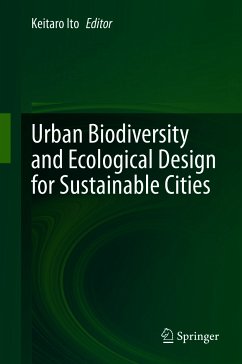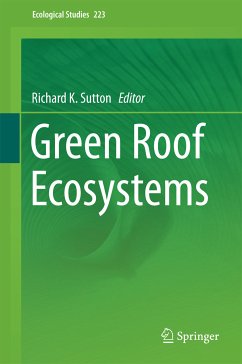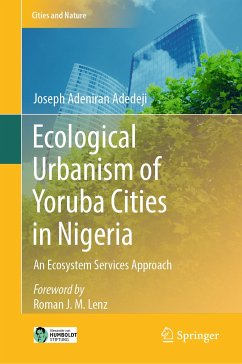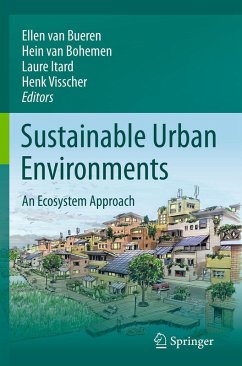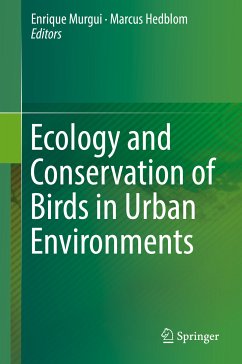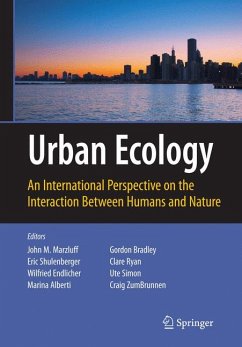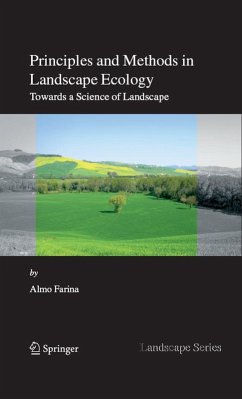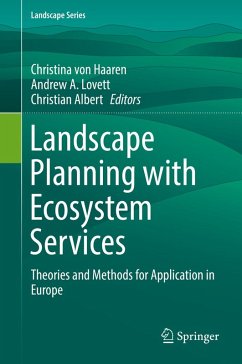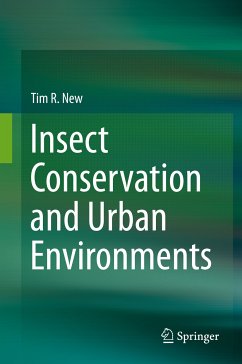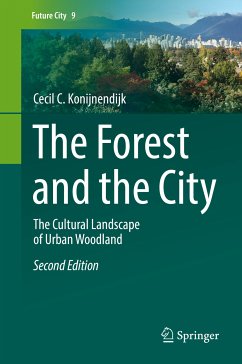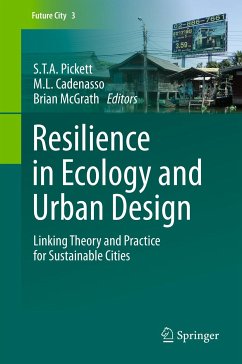
Resilience in Ecology and Urban Design (eBook, PDF)
Linking Theory and Practice for Sustainable Cities
Redaktion: Pickett, S. T. A.; Mcgrath, Brian; Cadenasso, M. L.
Versandkostenfrei!
Sofort per Download lieferbar
160,95 €
inkl. MwSt.
Weitere Ausgaben:

PAYBACK Punkte
80 °P sammeln!
The contributors to this volume propose strategies of urgent and vital importance that aim to make today's urban environments more resilient. Resilience, the ability of complex systems to adapt to changing conditions, is a key frontier in ecological research and is especially relevant in creative urban design, as urban areas exemplify complex systems. With something approaching half of the world's population now residing in coastal urban zones, many of which are vulnerable both to floods originating inland and rising sea levels, making urban areas more robust in the face of environmental threa...
The contributors to this volume propose strategies of urgent and vital importance that aim to make today's urban environments more resilient. Resilience, the ability of complex systems to adapt to changing conditions, is a key frontier in ecological research and is especially relevant in creative urban design, as urban areas exemplify complex systems. With something approaching half of the world's population now residing in coastal urban zones, many of which are vulnerable both to floods originating inland and rising sea levels, making urban areas more robust in the face of environmental threats must be a policy ambition of the highest priority.
The complexity of urban areas results from their spatial heterogeneity, their intertwined material and energy fluxes, and the integration of social and natural processes. All of these features can be altered by intentional planning and design. The complex, integrated suite of urban structures and processes together affect the adaptive resilience of urban systems, but also presupposes that planners can intervene in positive ways. As examples accumulate of linkage between sustainability and building/landscape design, such as the Shanghai Chemical Industrial Park and Toronto's Lower Don River area, this book unites the ideas, data, and insights of ecologists and related scientists with those of urban designers. It aims to integrate a formerly atomized dialog to help both disciplines promote urban resilience.
The complexity of urban areas results from their spatial heterogeneity, their intertwined material and energy fluxes, and the integration of social and natural processes. All of these features can be altered by intentional planning and design. The complex, integrated suite of urban structures and processes together affect the adaptive resilience of urban systems, but also presupposes that planners can intervene in positive ways. As examples accumulate of linkage between sustainability and building/landscape design, such as the Shanghai Chemical Industrial Park and Toronto's Lower Don River area, this book unites the ideas, data, and insights of ecologists and related scientists with those of urban designers. It aims to integrate a formerly atomized dialog to help both disciplines promote urban resilience.
Dieser Download kann aus rechtlichen Gründen nur mit Rechnungsadresse in A, B, BG, CY, CZ, D, DK, EW, E, FIN, F, GR, HR, H, IRL, I, LT, L, LR, M, NL, PL, P, R, S, SLO, SK ausgeliefert werden.




